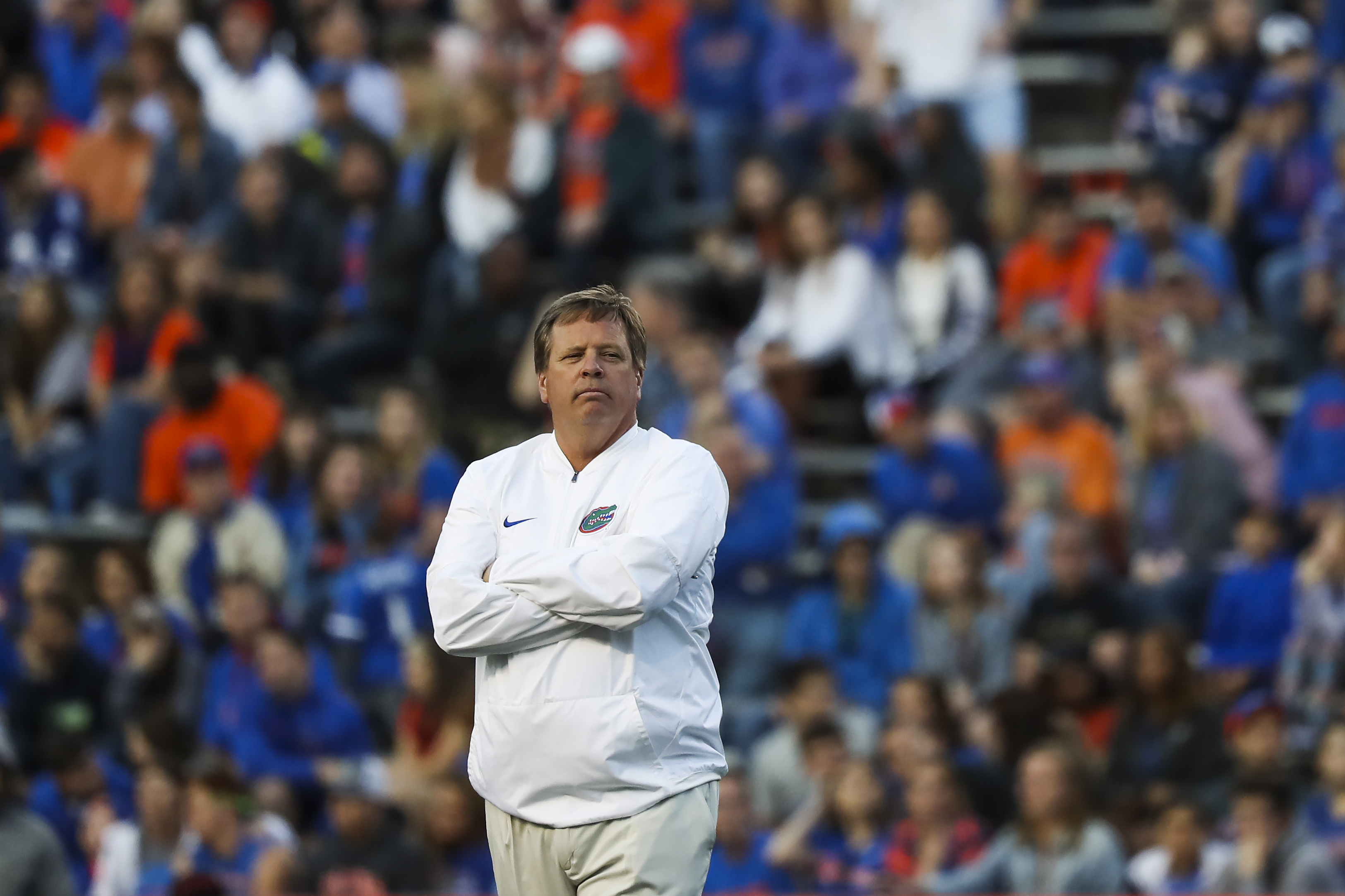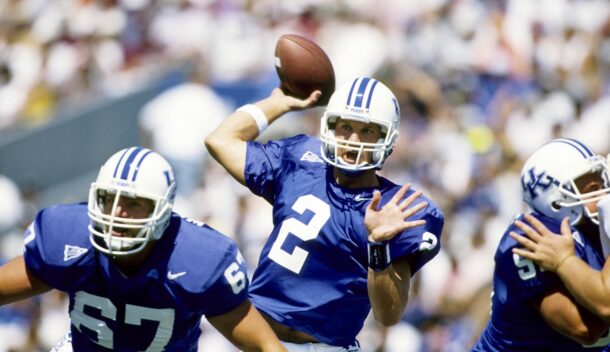
Discipline issues have backed McElwain into a corner, but he shouldn’t be the one deciding, anyway
By Corey Long
Published:
Jim McElwain seems like a pretty decent guy and at times he’s a pretty good coach. He probably takes some things too seriously and really shouldn’t brag about back-to-back SEC East titles as much as he does, but overall I would place him in the upper echelon of SEC coaches.
That being said, he’s starting to paint himself in a corner when it comes to discipline, and that’s a bad place to be for the Gators head coach.
Wide receiver Antonio Callaway is a star and has first-round NFL potential. He’s also proven to be a bit of knucklehead with a penchant of attracting trouble whether it’s the sexual assault claim that he was cleared for (by a booster who was the hearing officer), or the marijuana thing, or the credit-card fraud thing.
While many outlets wondered if the marijuana thing was going to get Callaway suspended for the season opener, he doubled down with the credit-card fraud thing and McElwain decided to run the two transgressions concurrently and just suspend him for Michigan anyway. Fine.
Then word comes down last week that linebacker Ventrell Miller, who is already suspended for being part of the credit-card fraud was also cited for marijuana possession with wide receiver James Robinson.
If you’re thinking this isn’t the first time you’ve heard Robinson’s name mentioned with marijuana, you’re right. Robinson was probably the most controversial signee in the Gators’ 2017 class. By all accounts McElwain put his neck on the line to make Robinson part of the signing class and had to wait until the end of the summer for him to finally be academically cleared.
https://twitter.com/_StunnaJayy_/status/895775910112227328
In the grand scheme of things, this marijuana possession citation isn’t a major issue. It’s not sexual assault. It’s not gun play. However, it’s telling that Robinson wouldn’t even wait until the season started before giving people a reason to question McElwain’s influence on the decision to let him in.
Gators Senior Associate AD Steve McClain said McElwain “is aware and it has been dealt with.”
Oh, really?
Did they run laps? Will Robinson be benched for a series? Will it just be ignored? Should it just be ignored?
Should college coaches even be in a position to be the final authority on discipline anymore? Can they be trusted in situations like these?
College coaches have enough pressure on them to win and appease their increasingly rabid fan bases. They shouldn’t be saddled with the responsibilities of discipline, especially when the necessarily discipline could conflict with winning.
I remember in 2009 when Florida defensive lineman Carlos Dunlap was suspended for the SEC Championship Game because he got a DUI during the week. One of my friends, a former FBS quarterback who is now a college coach, said he would have never suspended Dunlap.
“Why not?” I asked
“Because it would punish the team,” he explained. “Why should I punish the whole team because one guy acted stupid? I will run him to death this week, but he’s playing Saturday. The rest of the team worked too hard to get to this point.”
Interesting.
Dunlap stayed suspended. Florida lost to Alabama 32-13, which basically ended the Gators’ big run under Urban Meyer and started Alabama’s big run under Nick Saban, one that continues to this date.
But back to that conversation with my friend. It’s an interesting point and I guess it could make sense coming from a coach’s perspective. The emphasis of winning and money has become so great in college football that running a clean program and being a good disciplinarian have taken a major back seat.
Saban had the opportunity to set an example with Da’Shawn Hand and declined. Probably because Alabama opens the season with Florida State. If the Tide opened the season with Florida A&M, it’s likely he would have been suspended.
Jeffery Simmons mounted and beat a woman (on film!) after he signed a scholarship offer to Mississippi State and the braintrust in that program suspended him for one game — last season’s opener against South Alabama.
College coaches have enough pressure on them to win and appease their increasingly rabid fan bases. They shouldn’t be saddled with the responsibilities of discipline, especially when the necessarily discipline could conflict with winning.
This is why all conferences should have a centralized commission on discipline. If a player gets in trouble, the commission does the investigating, the commission sets the hearing and the conference commission doles outs the punishment. This way the next time a coach is asked if he’s determined consequences for the actions of so-and-so, the coach can simply say “the commission is aware of it and they are conducting an investigation.”
Hopefully such a commission would result in a reduction on discipline issues. One would have to think twice knowing their future is in the hands of commission that doesn’t care about how important he is to the team instead of a coach whom he knows needs him to play.
Corey Long is a freelance writer for SaturdayDownSouth.com. Follow Corey on Twitter @CoreyLong.







